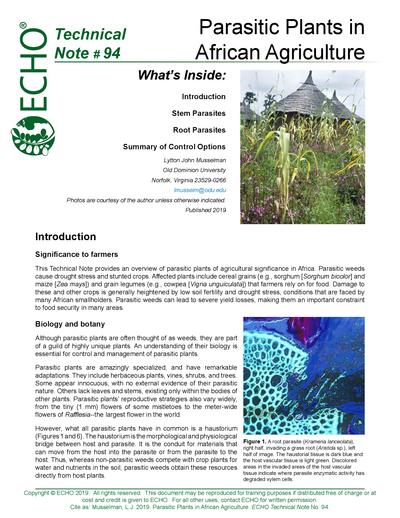Parasitic Plants in African Agriculture - ECHO Technical Note #94
Publicado
2019-03-27
ECHO's newest Technical Note, by Lytton John Musselman, provides an overview of parasitic plants of agricultural significance in Africa. Parasitic weeds cause drought stress and stunted crops. Important grains such as sorghum, maize, and cowpea are affected. Damage to these and other crops is worsened by low soil fertility and drought stress, conditions that are faced by many African smallholders. Parasitic weeds can lead to severe yield losses, making them an important constraint to food security in many areas.
This Technical Note provides an overview of parasitic plants of agricultural significance in Africa. Parasitic weeds cause drought stress and stunted crops. Affected plants include cereal grains (e.g., sorghum [Sorghum bicolor] and maize [Zea mays]) and grain legumes (e.g., cowpea [Vigna unguiculata]) that farmers rely on for food. Damage to these and other crops is generally heightened by low soil fertility and drought stress, conditions that are faced by many African smallholders. Parasitic weeds can lead to severe yield losses, making them an important constraint to food security in many areas.